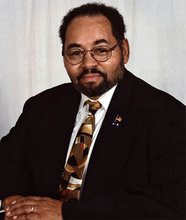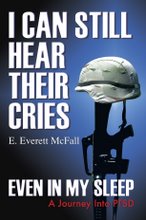Post-war Trauma Cases Up
Inadequate care blamed for suicide spike...
By William Johnson • wjohnson@dailyworld.com • June 2, 2008
Read Comments(3) E-mail this article
Del.icio.us , Facebook , Digg , Reddit , Newsvine
Last week's Opelousas Memorial Day observance paid special
tribute to Sgt. Joseph Ronald Barnaba II, who was severely injured
in Iraq and was found dead at his home in St. Landry Parish two
weeks ago.
His first cousin, Dexter Scott Freeman, said it may have been
terrorists who attacked him, but it was a lack of adequate
care at home that killed him.
"The insurgents didn't kill him. Our government killed him. Everbody
wants to wave the flag but the truth is so much more. These guys are
coming home with so much pain, many have lost their jobs, their homes.
They are in so much pain most people can't fathom it," Freeman said.
While critical of the treatment his cousin received, Freeman is
no critic of the military. Freeman, a 10-year military veteran,
said he and Barnaba grew up in the same house - a house with
a strong military tradition. Freeman's brother is still in the
National Guard, and other family members serve in the Marines
and Air Force.
According to Freeman, his cousin was suffering from post-
traumatic stress disorder. Local mental health care
professional Paula Carriere said Barnaba was not alone. She said
she is seeing many veterans who are having trouble adjusting.
"One in eight is suffering from post-traumatic stress syndrome.
It is affecting not just them but their families," Carriere told the
Opelousas Noon Rotary Club last week.
(This Vietnam Veteran, strongly believes it's
closer to Six in Eight- that are suffering with
PTSD!)
"A lot aren't getting the mental health counseling they need. They
are dealing with a lot anger, feeling out of control, they are impatient,
constantly on guard," Carriere said. "They have a tremendous set of
issues." In a report released this month, the military said newly
diagnosed cases of PSTD among U.S. troops sent to Iraq and
Afghanistan surged 46.4 percent in 2007.
The numbers are especially troubling concerning the National Guard.
While Guard and Reserve troops make up less than a third of soldiers
serving in the war, they make up more than half of veterans who
commit suicide after returning home.
Officially, the military only acknowledges about 40,000 PTSD cases.
A recent study by the RAND Corporation, a military think tank, called
that number low. It estimates about 300,000 troops, or 18.5 percent,
of the more than 1.5 million troops sent into the war zones exhibit
symptoms of either PTSD or depression.
The government is trying to correct the problem. In November,
President Bush signed a suicide prevention bill, which directed the VA
to improve its mental health training for staff and do a better job of
screening and treating veterans.
As a result, the VA has started its own suicide hotline. The VA and
the military have also made other improvements in suicide
prevention care, such as hiring more counselors and increasing
mental health screening. Despite these efforts, soldiers, veterans
and their families are running into what veterans advocates deem
excessive red tape and roadblocks when they try to use their
military insurance.
The deployment of hundreds of doctors and therapists to Iraq and
Afghanistan and the shortage of military health care providers has
forced patients at veteran's clinics and hospitals to wait months for
appointments - longer if they need to see a specialist.
Meanwhile, civilian doctors and psychiatrists say they're often faced
with tough decisions about whether to turn away patients on Tricare,
the Defense Department program that insures 9.2 million current
and former service members and their dependents. Its
reimbursement rates are low and its claims process cumbersome.
The problem is expected to only get worse. Tricare's reimbursement
rate are linked to Medicare levels. Health care providers who treat
patients on both programs will take a 10 percent pay cut on July 1
and a second, 5 percent, pay cut on Jan. 1, 2009.
In the meantime, Freeman urges family members of veterans to
surround their loved ones with support.
"To those of you who do have family members serving, please make
sure you can surround that individual with the help he or she she
needs because, I have to be frank, this story is going to repeat itself
again and again," Freeman said.
For more information
The toll-free Veterans Affairs Department Suicide hotline number is
1-800-273-TALK (8255).
Veterans Affairs Department: va.gov
Iraq and Afghanistan Veterans of America: iava.org
------------------------------------------------>
Flashback, Posttraumatic Stress Disorder, Suicide,
and the Lessons of WAR by Penny Coleman
and---> I Can Still Hear Thier Cries, Even In My Sleep
... A Journey Into PTSD By E. Everett McFall
Both Books are Available on Amazon.com
Monday, June 2, 2008
Subscribe to:
Post Comments (Atom)







No comments:
Post a Comment